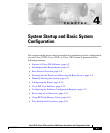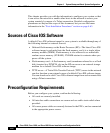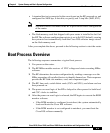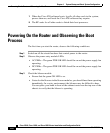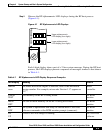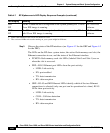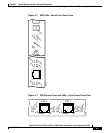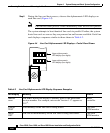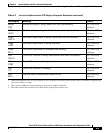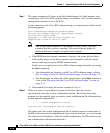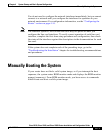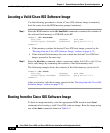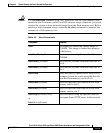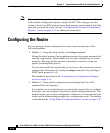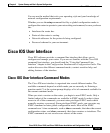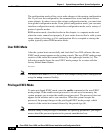
Chapter 4 System Startup and Basic System Configuration
Sources of Cisco IOS Software
4-2
Cisco 12010, Cisco 12410, and Cisco 12810 Router Installation and Configuration Guide
OL-11496-01
This chapter provides you with the information to configure your system so that
it can access the network or enable other hosts in the network to access your
system remotely by means of a Telnet connection. Detailed configuration
procedures are beyond the scope of this document, but you can find more
information in the “Post-Installation Procedures” section on page 4-63.
Sources of Cisco IOS Software
A default Cisco IOS software image for your system is available through any of
the following internal or external sources:
• Onboard flash memory on the Route Processor (RP)—The latest Cisco IOS
software image is preloaded into the flash memory, and it is a single inline
memory module (SIMM). Flash memory is also referred to as nonvolatile
random access memory (NVRAM). NVRAM retains its contents when you
power off the system.
• Flash memory card—A flash memory card (sometimes referred to as a flash
disk) inserted in a PCMCIA slot on the RP can serve as an external storage
medium for a default Cisco IOS software image.
• TFTP server—A Trivial File Transfer Protocol (TFTP) server in the network
can also function as an external source of a default Cisco IOS software image.
You can download a valid Cisco IOS software image from such a remote host
using a Telnet connection.
Preconfiguration Requirements
Before you configure your system, confirm the following:
• All cards are securely installed.
• All interface cable connections are secure and use cable strain relief where
provided.
• All source power cables are securely fastened to the PDUs, and are connected
to the appropriate power source.



